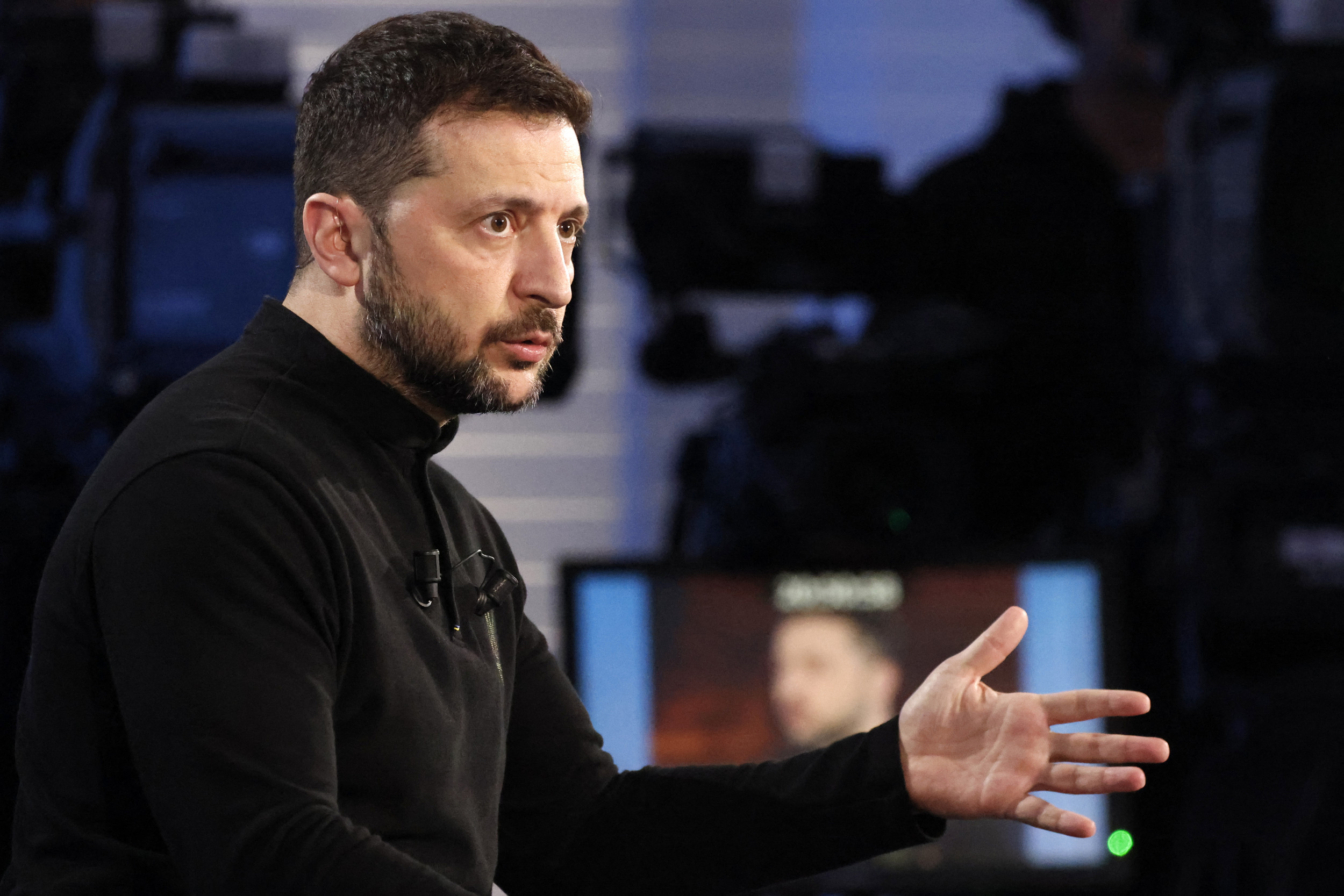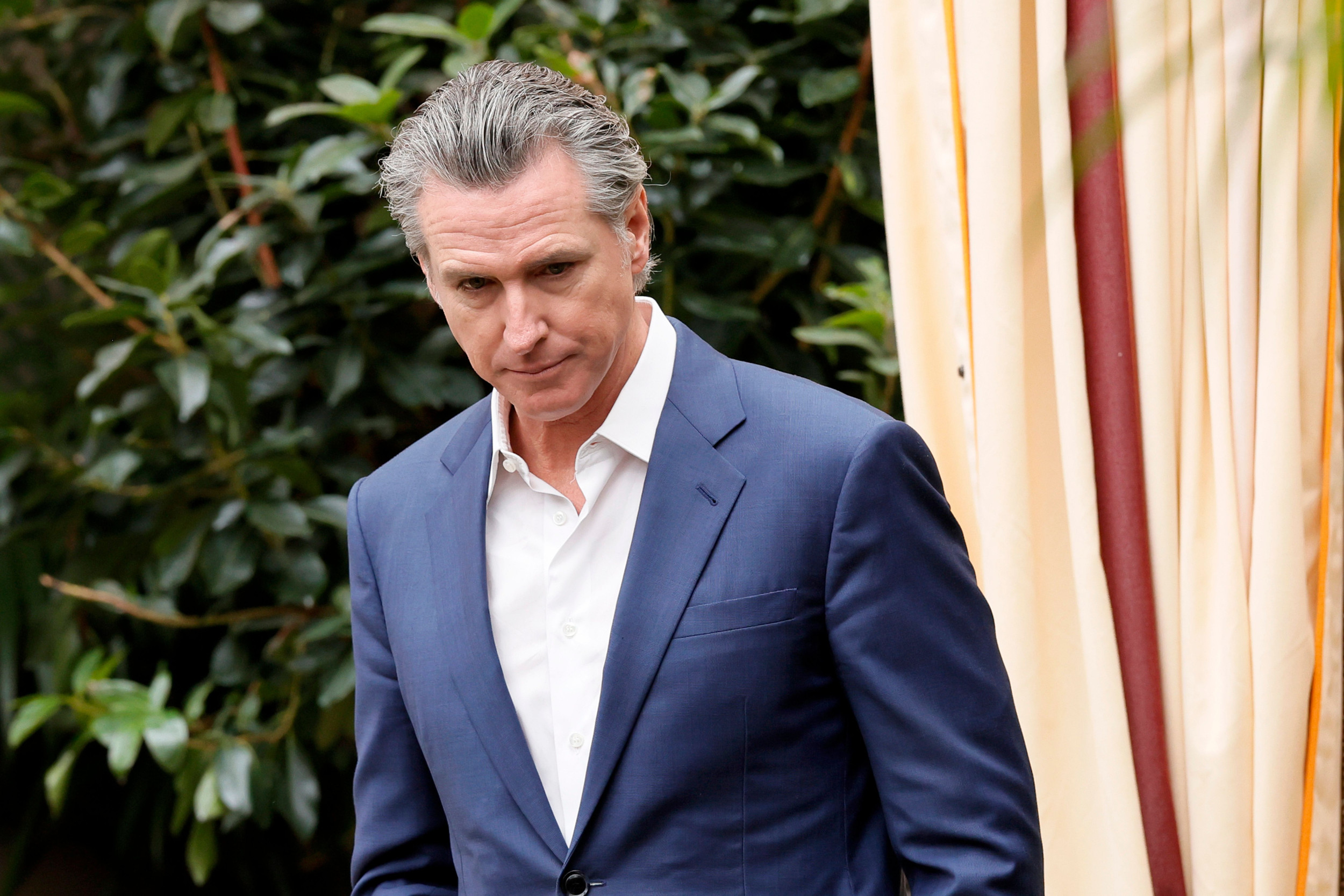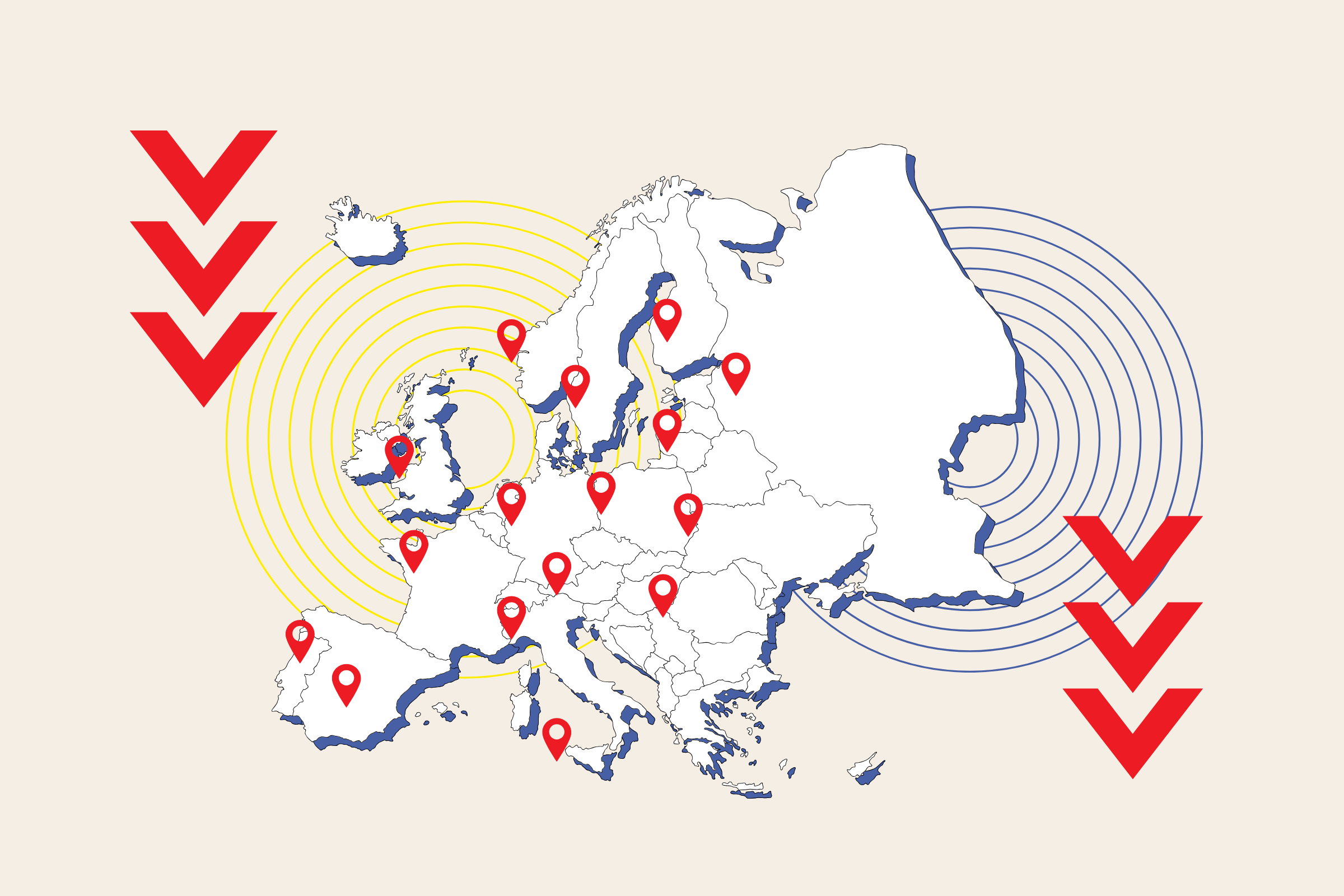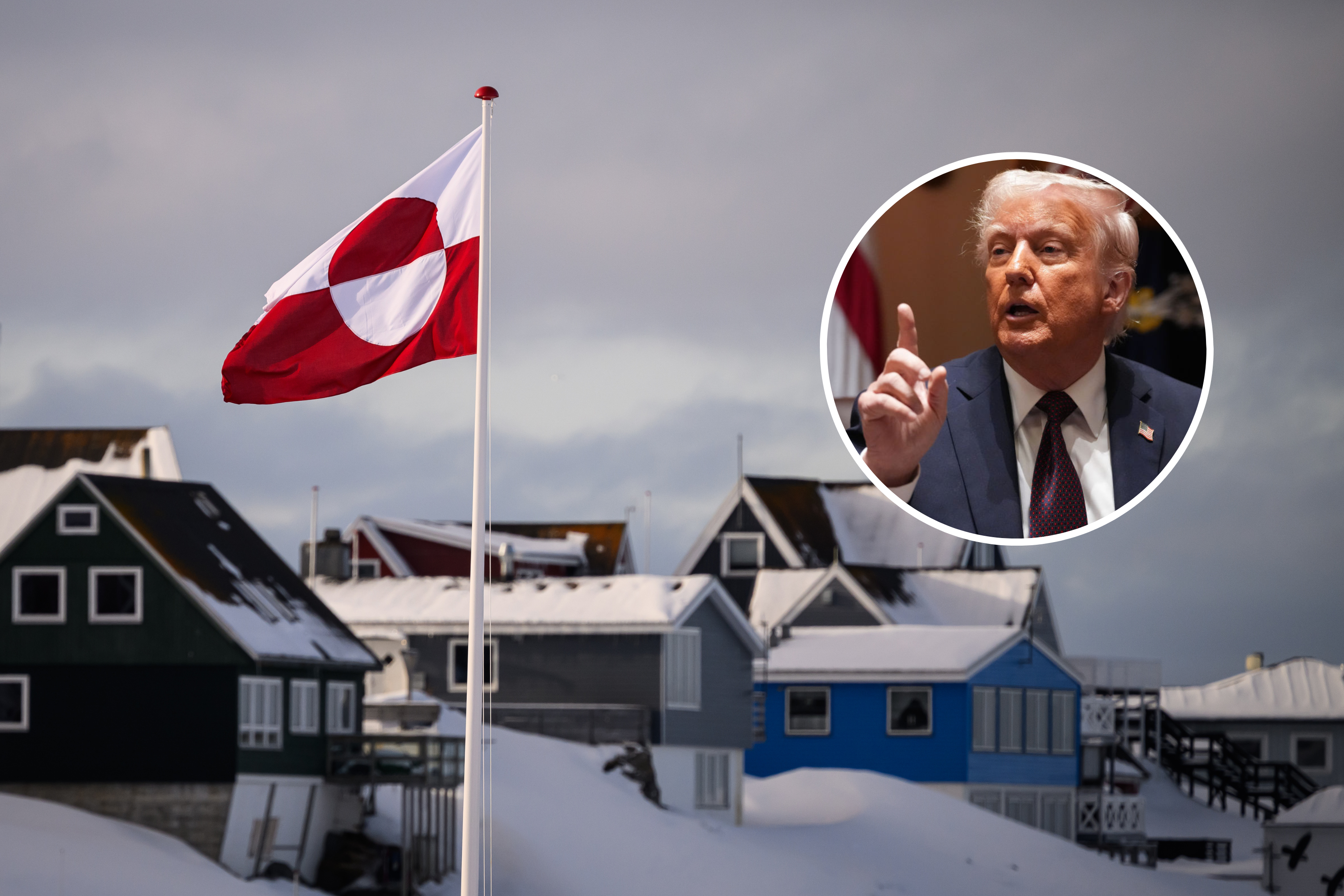Ukraine's president Volodymyr Zelensky said a naval ceasefire deal with Russia in the Black Sea was a step in the right direction but as Kyiv put its positive spin on it, Vladimir Putin can also point to advantages he has gained.
Separate deals between Russia and Ukraine brokered by the U.S. are expected to fully reopen a key trade route but could also play into the hands of Russia whose navy has been chased out of Crimea thanks to Kyiv's effective drone and missile strikes.
Ukrainian politician Oleksiy Goncharenko told Newsweek on Wednesday while Kyiv is glad the U.S. is making efforts to achieve peace, there is uncertainty about whether the agreement includes the security of the ports of Kherson and Mykolaiv.

Why it matters
More than three years after Putin launched his full-scale invasion, the agreement by Russia and Ukraine to eliminate the use of force in the Black Sea is the first tentative step toward peace.
Ukraine can hope for a pause in Russian drone and missile attacks on its infrastructure, but there are still many unknowns over when it will come into force and whether there can be a deal on a comprehensive ceasefire, even if it is only temporary.
What to know
After U.S. negotiators met teams from Russia and Ukraine separately, Washington announced Tuesday there was an agreement for a naval ceasefire in the Black Sea and that all parties would continue working toward a lasting peace.
But Trump, who has touted his ability to end the war quickly, said on Tuesday that Russia may be "dragging their feet" on ending the war, suggesting that any path to peace remains a tricky one.
What Russia gains
With not much of a navy, Ukraine has achieved remarkable success with its strikes on Russia's Black Sea fleet, which have forced it away from Sevastopol to Novorossiysk, meaning that the deal could see Kyiv relinquish this maritime advantage.
Goncharenko, a Ukrainian MP and member of the Ukrainian delegation to the Parliamentary Assembly of the Council of Europe (PACE) said that there were also concerns about the details of the final agreement.
He said that security in the Black Sea for Ukraine did not just involve the port city Odesa—but also the security of the ports of Kherson and Mykolaiv which are blocked by Russian mines. Any fair and just agreement must include these two ports, he added.
Zelensky said the ceasefire would take effect immediately but the Kremlin has said a Black Sea ceasefire would not take effect until sanctions were lifted from Russian banks, producers and exporters involved in the food and fertilizer trades.
Russia also wants its banks to be reconnected to the SWIFT payment system and these stipulations could negate the Western-led moves to isolate it from the global financial system as punishment for its aggression.
Moscow has said it does not trust Zelensky to uphold the deal and so would only sign a Black Sea deal if Washington issued an "order" that he respect it.
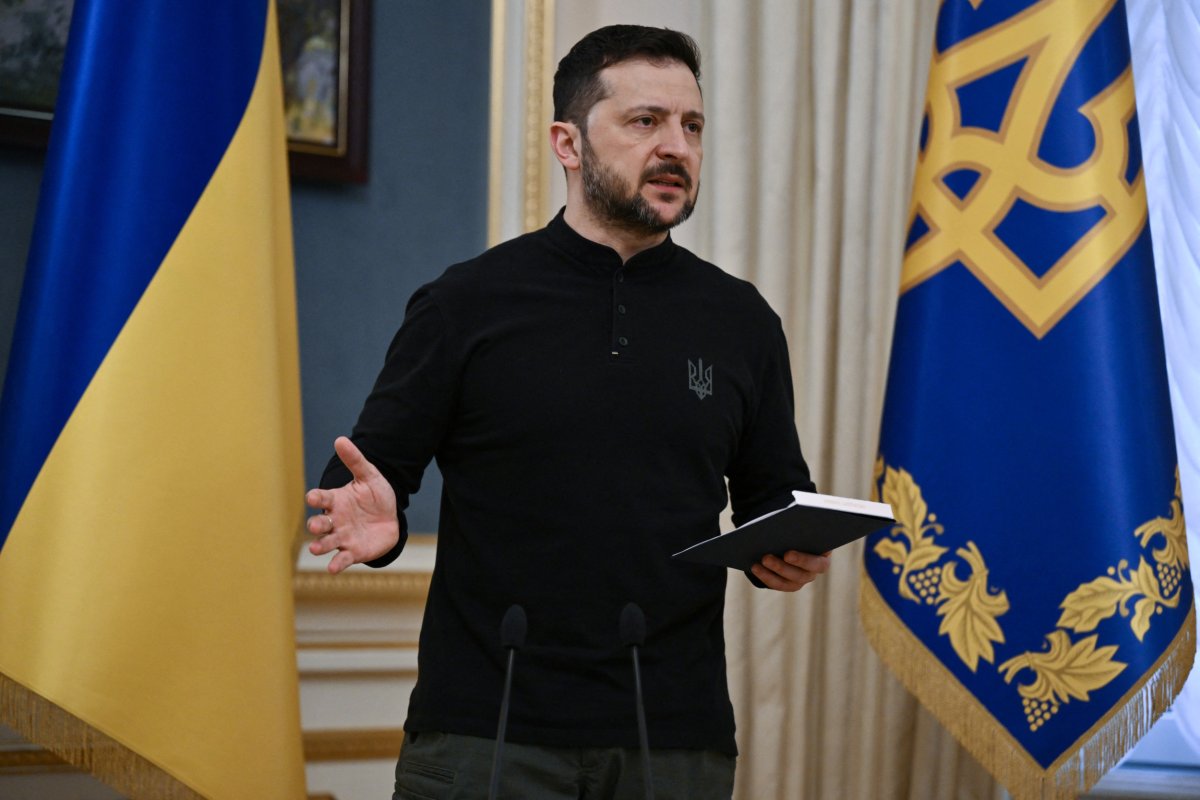
What Ukraine gains
The White House said that the sides had agreed to ensure safe navigation, eliminate the use of force, and prevent the use of commercial vessels for military purposes in the Black Sea.
Details have not been released, but the deal is an attempt to ensure safe Black Sea shipping after a 2022 agreement that was brokered by the U.N. and Turkey was halted by Russia in 2023. Unfettered trade in the body of water will be welcomed by Ukraine.
In addition, an agreement to develop measures to stop strikes against energy infrastructure, could give Ukraine a much-needed reprieve from the bombardment of its cities by Russian drones and missiles.
U.S. National Security Adviser Mike Waltz told CBS News before the talks, that they would include a prisoner exchange and the fate of 20,000 children Kyiv says have been illegally abducted by Russia, on which Ukraine will be hoping for a breakthrough.
Zelensky can also claim that progress has been made, as he welcomed the deal which he said marked the initial steps toward completely ending the war and a "sustainable and fair peace agreement."
Senior Russia аnalyst Oleg Ignatov of the International Crisis Group told Newsweek that while there is no agreement on a comprehensive ceasefire, the progress in Saudi Arabia may lay the groundwork for more substantial agreements in future.
He said that further advances will depend on how Moscow, Kyiv and Washington implement what has been achieved so far and that all parties must also align on the timing and substance of any future agreements.
What people are saying
Ukrainian president Volodymyr Zelensky: "These are the first steps—not the very first but initial ones—with this presidential administration toward completely ending the war and the possibility of a full ceasefire,
Ukrainian politician Oleksiy Goncharenko: "The ceasefire in the Black Sea is important for Ukraine and we are glad that the United States is making efforts to achieve it but there are some concerns about the details.
"Security in the Black Sea for Ukraine is not only the security of the port of Odesa, but also the security of the ports of Kherson and Mykolaiv. Now they are blocked by the Russians and the approaches to them are heavily mined."
International Crisis Group's Senior Russia аnalyst Oleg Ignatov: "Though Russia and Ukraine have yet to agree on the most vital issue—a comprehensive, even if temporary, ceasefire—the progress made in Saudi Arabia may lay the groundwork for more substantial agreements down the line."
Russian Foreign Minister Sergei Lavrov told Russian TV Tuesday: "We will need clear guarantees. And given the sad experience of agreements with just Kyiv, the guarantees can only be the result of an order from Washington to Zelensky and his team to do one thing and not the other."
What happens next
Ignatov said that all parties must also align on the timing and substance of any future agreements and as meetings have made clear, swift results are unlikely. He added that the process will be protracted, the negotiations painstaking, and disputes over wording and interpretation inevitable.
About the writer
Brendan Cole is a Newsweek Senior News Reporter based in London, UK. His focus is Russia and Ukraine, in particular ... Read more
